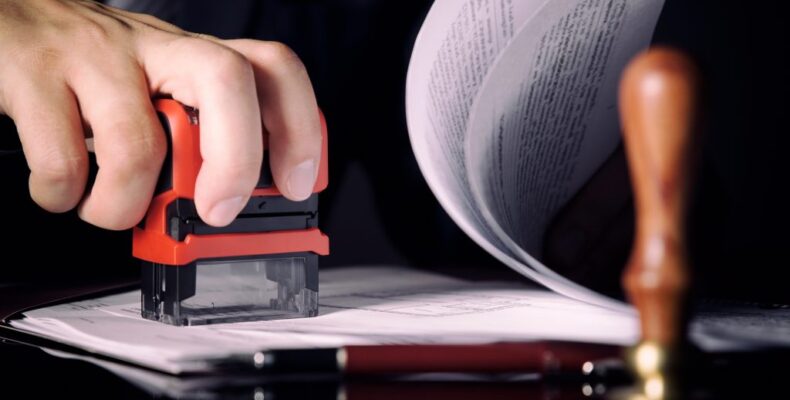Many people are surprised to learn that there are certain types of documents you can and cannot notarize. A notary public is an impartial witness who verifies the identity of the person signing a document and witnesses the signature. Notaries can also administer oaths and affirmations, take affidavits and depositions, and certify copies of certain documents.
However, notaries cannot provide legal advice, prepare documents, or interpret documents. In addition, there are certain types of documents that cannot be notarized. These include wills, powers of attorney, deeds, and trusts. If you have any questions about whether or not a document can be notarized, it is always best to consult with an attorney.
What Types of Documents Need To Be Notarized?
A notary public is an official who can authenticate signatures on important documents. Getting a document notarized adds an extra layer of security and verification to it. There are many types of documents that commonly require notarization.
Wills and Estate Documents:
Documents relating to wills, trusts, and estate matters routinely need to be notarized. This includes last wills and testaments, living wills, power of attorney forms, health care proxies, and living trusts. Having these documents notarized helps prove their authenticity if questions ever arise about their validity. It also deters fraud or tampering.
Real Estate Documents:
When buying, selling or transferring ownership of real estate notarization is usually required on the deed, title, or bill of sale. Real estate contracts, leases and other related documents may also need to be notarized. The notary’s stamp and signature verify the identities of the parties involved in the transaction. This prevents deeds and titles from being forged.
Loan Documents:
Banks and lenders want notarized signatures on important financial agreements like mortgages, car loans and home equity loans. Notarizing these contracts deters borrowers from later claiming they were coerced or defrauded. It also prevents others from trying to fraudulently take out loans in someone else’s name.
Affidavits:
Legal Agreements:
Legal agreements like prenuptial agreements, child custody agreements, and court settlements need notarized signatures. Having these contracts notarized shows all parties entered into the agreement knowingly and willingly. It also allows them to be upheld as binding if challenged.
Business Documents:
Corporations require notarization on many important documents like stock certificates, board resolutions, sales contracts and shareholder agreements. Partnership agreements, commercial leases, and loan guarantees also typically need notarization. This verifies the legitimacy of the business deals.
Witness Statements:
If a witness testifies or gives a sworn statement, they are often asked to sign it in front of a notary. This could include witness statements to police, sworn affidavits, or depositions for lawsuits. The notary observes the signing and can confirm the witness’s identity.
Powers of Attorney:
Special legal powers granted to another person need to be notarized to prevent misuse. This includes medical power of attorney, child guardianship forms, and business or financial powers of attorney. Notarization provides oversight and protection against abuse of these powers.
What Documents Cannot Be Notarized?
As mentioned above, there are certain types of documents that cannot be notarized. These include wills, powers of attorney, deeds, and trusts. This is because these types of documents require additional witnesses or signatures in order to be valid.
Where Can I get a Notarization Service?
There are many places where you can get a form notarized. Some common places include banks, post offices, and libraries. You can also find mobile notary services at many different businesses, such as law firms, real estate offices, and insurance companies. Where can I get a form notarized is the common question that is asked by enormous amount of people who actually acquired the Notarization Services. Pac Signing Notary is a great place to get a form notarized. We are a professional notary service that can notarize any type of form. We have a wide range of experience and can notarize any type of form quickly and efficiently.
Conclusion:
A notary public is an impartial witness who verifies the identity of the person signing a document and witnesses the signature. Notaries can also administer oaths and affirmations, take affidavits and depositions, and certify copies of certain documents. However, there are certain types of documents that cannot be notarized. These include wills, powers of attorney, deeds, and trusts. If you have any questions about whether or not a document can be notarized, it is always best to consult with Notary Public Oregon for best guidance.

